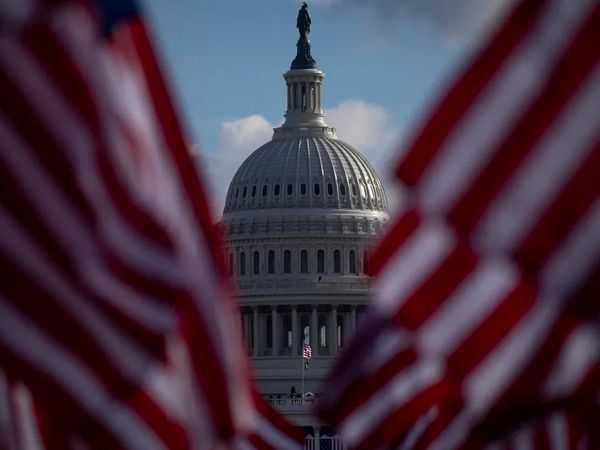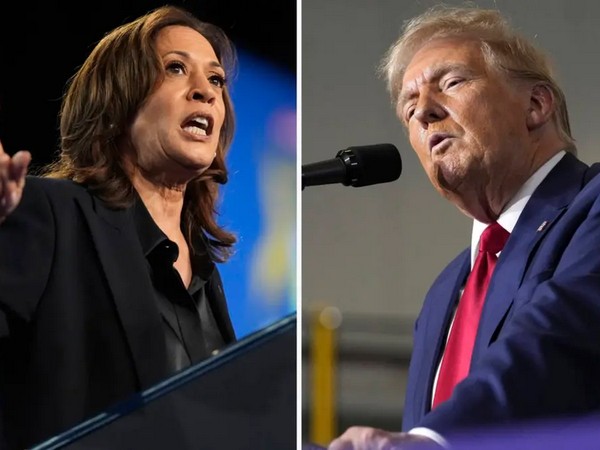Donald Trump has won and he will now become the 47th President of the United States. He trounced the Democratic candidate and current vice-president Kamala Harris by millions of votes. The Republicans also hold the majority in the Senate, and Elon Musk is already rumoured to be part of Trump's new cabinet, although it is not clear in which capacity.
But what persuaded US voters to cast their ballots for a former president, who has been impeached twice and prosecuted thousands of times? We talked about it with Luiza Bialasiewicz, professor of Economic and Political Geography at the Ca' Foscari Department of Economics, a US citizen with an international academic background and former director of the Centre for European Studies at the University of Amsterdam.
Was it inflation, was it immigration, was it an electoral campaign that began only in the past few months – what was it that hurt Kamala Harris most in her bid for the US Presidency?
I think we should, rather, ask ourselves why Harris’ appeals to threats to abortion and reproductive rights, as well as more broadly threats to fundamental freedoms and to democracy that a Trump Administration would usher in, did not ‘stick’ with voters. Many of the predictions of the vote focused specifically on the role of women who would ‘surely’ deliver Harris to the White House. That did not happen. Even in states where abortion rights are already under attack, women did not turn out in the numbers expected to vote for Harris.
The questions driving this election were economic. It is clear that for the majority of the electorate, the question of economic precarity was much much more relevant. On the campaign trail, Trump continued to repeat that Americans can no longer afford bacon – a lack seen as embodying the decline of ‘real America’. But considering the inflation of the past years, many Americans cannot even afford the eggs to go with that bacon. A growing proportion of the US population is marked by not just economic precarity but also food poverty. The glowing pronouncements of both Biden and later Harris of a US economy that has ‘never been better’ only served to further rub this in. Yes, the stock market has been booming – but the benefits of this boom extend to an ever shrinking part of the population. For most of the US public, it is debt that has ‘boomed’, with credit card debt at its highest levels ever.
This precarity is clearly not the result of the economic policies of the Biden-Harris administration, but this administration is nevertheless seen as having done very little for the average American – and worse still, seen as not really caring much about their economic pain.
Can we say that the US is divided in two?
Yes, without a doubt – but the divided electoral geographies reflect also profoundly divided economic geographies, as I noted above. The bulk of Trump’s electorate is convinced that their lives will be better under his administration. This is obviously contestable: it is hard to imagine how Trump’s proposed economic policies can possibly help the poorest sectors of the US population. But the Democrats’ problem lies there as well: rather than engaging the real issues of economic precarity (if not despair), they have opted for a moralizing narrative that depicts Trump voters as ignorant and deluded, unable to perceive their own class interests. It is this that has driven many Americans straight into the MAGA camp. Commenting on the vote tallies that were coming in on election night, a CNN commentator put it perfectly: ‘the Democrats treat the working class like missionaries. Vote for us, and we will help you become like us’. And that is where Trump’s success lies.
What influence has the diffuse anti-migrant rhetoric had in the campaign?
Trump’s violent rhetoric on illegal migration lay at the heart of the campaign. Even in his acceptance speech, he made sure to emphasize that ‘we will seal our borders’ so that ‘we can finally take back control of the country’.
I don’t want to in any way minimize the violence and deep racism of this rhetoric, but I think we need to locate the ‘migrant question’ again within the wider context of precarity. For an electorate that feels increasingly marginalized – economically, politically, socially, geographically – the foreigner, the illegal migrant is a perfect scapegoat. This is obviously not unique to the US since we have witnessed very similar dynamics in various European contexts as well. In a rapidly changing, precarious world, the promise of reclaiming control – control of the national territory, of who enters and who does not, control over who has the right to rights (whether political or economic) – this promise of control, even if fictitious, becomes incredibly alluring. It is difficult to imagine how a political figure such as Donald Trump could be seen as reassuring, but he is – at least in his promises.
You mention parallels with various European contexts: Salvini and Orban were among the first to congratulate Trump via their social media. Giorgia Meloni also greeted Trump’s victory with affirmations of an even stronger relationship between the two countries. What will the US-EU relationship look like under a Trump Administration?
From the minute a Trump victory seemed possible, a slew of European politicians flocked to their social media to proclaim the need, now more than ever, for a ‘united Europe’.
Apart from the vagueness of such appeals, which are simply slogans rather than concrete policy prescriptions, I strongly doubt that a Trump Presidency will magically lead Europeans to forget and forgive their differences. I think it is much more likely, in fact, that the ‘Trump effect’ will be to further fracture the EU, accentuating existing divides: whether on continued military assistance to Ukraine, the role of NATO, or the continuation of the sanctions regime on Russia.
These divides, I fear, will also become evident in geoeconomic choices: it is easy to proclaim a ‘European sovereignty’ but thus far EU Member States have struggled to find a common front on key issues such as the Green Deal or trade and investment policies with China. The risk is that the incoming Trump administration will try to break up any form of consensus in EU economic policy, ‘picking off’ states and proposing bilateral deals in different sectors – whether in energy and natural resources or in the car industry. I very much hope I am wrong on this point.
Are there other dangers for Europe?
Unfortunately, yes. Apart from feeding fractures among EU states on geopolitical and geoeconomic questions, there is also the risk (if not certainty) that Trump’s victory will strengthen illiberal and nationalist forces in Europe. It will give a further boost to right and extreme right parties, helping to further normalize and legitimize anti-immigration, anti-women and anti-Green Deal agendas. The ties between the Trump/MAGA political galaxy and extremist movements in Europe are long-standing: his return to the White House will further enhance the relevance of the transatlantic ‘illiberal axis’.
Trump is, in fact, ‘best friends’ with a variety of illiberal and nationalist leaders, from Putin to Netanyahu. What sort of impacts for the world should we expect from a Trump Administration?
I think we are facing a very uncertain and unstable scenario. Both Trump and his Vice-Presidential running mate JD Vance have repeatedly affirmed that they will pull back US troops from commitments both in Europe and elsewhere. Also in his acceptance speech, Trump repeated that ‘we need to stop all wars. We want a strong military but hopefully no need to use it’. With the promise of ‘America First’, the Trump campaign has vowed to place the needs and problems of US citizens before all else: wasting money on foreign wars in no way benefits average Americans. And clearly the voters agreed with him on this point.
I think Trump’s claims that he can end the war in Ukraine ‘with a deal in less than 24 hours’ are a bit of a caricature – but they speak to the transactional style of foreign policy that has characterized also the first Trump administration. There is only one key question: ‘what does the US get out of this’? In this optic, why should the average American care about what happens in Kherson?
And still on the Ukrainian question, the moralizing appeals of the Democrats have failed miserably in convincing a majority of the US public. Presenting military support to Ukraine as a battle for the future of the West, a battle for the future of democracy, has in no way persuaded the average American, even those who previously believed in the ‘indispensable’ role of the US in the world. It will now be up to the EU and European states to decide how and if to maintain the commitment to Ukraine.
Would you say, then, that geopolitical questions played a part in the election?
Perhaps indirectly, but absolutely yes. The economic worries that shaped the vote were framed within a very specific set of geographical imaginaries: imaginaries not only of the territorial divides within the US, but also imaginaries of the US’ place and role in the world. A geographical imaginary of abandoned places, where people’s life chances have progressively worsened in the past years, reaching the point of desperation, was fundamental to the electoral appeal of Trump’s campaign. The slogan of ‘America First’ promises, indeed, both a territorial as well as individual ‘redemption’ (and I use this term willingly since Christian Evangelical language was key in Trump’s rhetoric). But the appeal to ‘America First’ also invoked another geographical imaginary, a global one: an imaginary of uncontrollable migration flows pressing against the US borders, unfair trade practices of economic competitors such as China that undermine US industry and workers’ pay, the ‘waste’ of military resources overseas to ‘take care of the problems of others’. And these two imaginaries – the local and the global – are directly linked. In the mental maps of the Trump electorate, the fact that the price of bacon at the local supermarket has tripled (to return to my previous example) is directly linked to China’s unfair trade practices, but also to the money spent in Ukraine. In this way, far-off and everyday geographies become entangled, and growing precarity in the US is tied directly also to the geoeconomic and geopolitical choices of the Biden-Harris White House. Choices for which the Harris campaign has paid the price.










